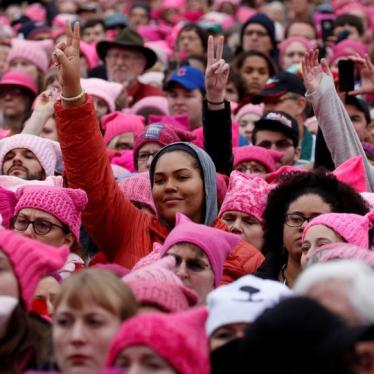The latest scandal out of the White House this week – revolving around the administration’s decision to hire a top aide credibly accused of domestic violence – seems especially worrying in light of the administration’s larger record on women’s rights issues.
Rob Porter, White House staff secretary, resigned Wednesday as allegations surfaced that he had physically and emotionally abused two former wives. While it appears that President Donald Trump himself was unaware of these allegations, others in the White House allegedly knew about them for months.
In press statements Tuesday, White House Chief of Staff John Kelly defended Porter, saying he was “a man of true integrity and honor.” On Wednesday, when the story broke, Kelly said he was “shocked” by the most recent allegations and said domestic violence has no place in our society. The deputy White House press secretary offered only a vague expression of regret at how the situation was handled.
Others are raising the alarm. Senator John Kennedy, a Louisiana Republican, said of the allegations, “If you want to serve the public, particularly as a member of a president’s staff, I don’t care who you are, even if you’re a Rhodes Scholar, you can’t beat the hell out of your spouse.”
Mere decades ago, domestic violence was seen as a private family issue, not a public concern. If a man could provide value to society, be it through business or public service, what he did on his own time to his wife or partner was his business. Years of feminist work has led to widespread recognition of domestic violence as a human rights issue, and the failure of the governments to prevent, prosecute, and punish it.
In a year where the Violence Against Women Act is to be reauthorized, the White House needs to be reinforcing the message that freedom from domestic violence is a human right and of public concern. That burden is even heavier and more urgent after the events of the last few days.










